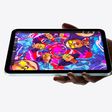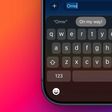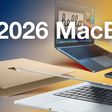Fitbit has announced a new partnership with glucose monitoring device company Dexcom that is set to bring diabetes monitoring capabilities to the fitness tracker company's new Ionic smartwatch.
The deal initially means Ionic users will be able to connect a Dexcom device to the Fitbit app and seamlessly transfer up-to-date glucose level data to the smartwatch, making the information more easily accessible on their wrist.
![]()
"The collaboration between Dexcom and Fitbit is an important step in providing useful information to people with diabetes that is both convenient and discreet," said Kevin Sayer, President and CEO, Dexcom. "We believe that providing Dexcom CGM data on Fitbit Ionic, and making that experience available to users of both Android and iOS devices, will have a positive impact on the way people manage their diabetes."
There's nothing in the partnership to suggest the Ionic smartwatch will be able to give continuous glucose monitoring readouts on its own when it's released next month – current continuous glucose monitoring systems require a small sensor that's worn under the skin to monitor glucose levels – but Fitbit shares jumped 13 percent on the news, a high for the company since January, when it laid off some of its employees and announced its smartwatch plans.
Dexcom also has a deal with Apple to bring its features to the Apple Watch this year, while owners of Dexcom monitors can already view their glucose data on an Apple Watch – advanced devices by Dexcom include a transmitter, which can display glucose information directly to an iPhone app.
Apple is thought to be working on a non-invasive real-time glucose monitor for a future version of Apple Watch. In April, a CNBC report suggested Apple had a team of biomedical engineers working to develop sensors for non-invasively monitoring blood glucose, with work on the sensors far enough along that the company had started conducting feasibility trials.
Apple CEO Tim Cook was reportedly spotted in May testing a prototype glucose monitor that's connected to his Apple Watch. Cook, who is said to be aiming to understand how his blood sugar is affected by food and exercise, has been seen wearing the device around the Apple Campus.


















